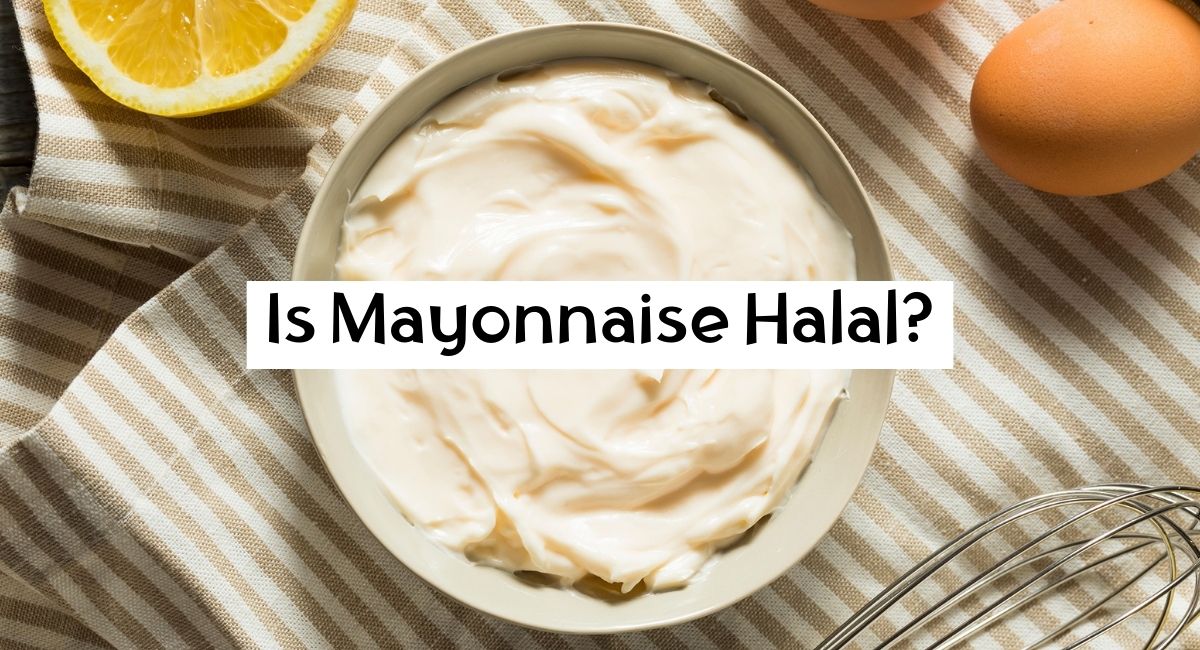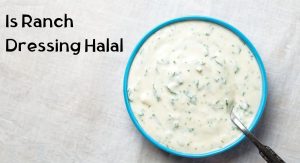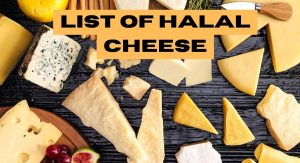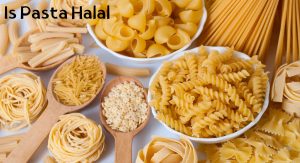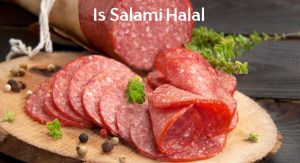Mayonnaise, a creamy and tangy condiment loved by many around the world, has become a staple in various culinary creations. Whether it’s spread on a sandwich, used as a dip, or incorporated into a salad dressing, its versatility knows no bounds. However, for those who follow Islamic dietary guidelines, a question often arises: Is mayonnaise halal? In this blog post, we will delve into the ingredients and production process of mayonnaise to determine its halal status. We will also ensure that Muslim individuals can make informed choices when enjoying this beloved condiment. Let’s dive into the fascinating world of mayonnaise and unravel the truth behind its halal credentials.
What Is Mayonnaise?
Mayonnaise is a popular and versatile condiment that has gained widespread recognition and appreciation across the globe. This creamy delight is typically made from a simple yet harmonious blend of ingredients, including oil, vinegar or lemon juice, and egg yolks. The result is a smooth, rich, and slightly tangy sauce that adds a delightful burst of flavour to numerous dishes.
The origins of mayonnaise can be traced back to the early 18th century in the Mediterranean region, particularly in Spain and France. The exact origins remain a topic of debate, with both countries claiming ownership of this culinary masterpiece. Regardless of its origin, mayonnaise has transcended borders and found its way into the kitchens of countless cultures worldwide.
What sets mayonnaise apart from other condiments is its distinct emulsified texture. The process of making mayonnaise involves slowly whisking oil into egg yolks while simultaneously adding acids, such as vinegar or lemon juice. This emulsification process allows the oil and egg yolks to combine seamlessly, resulting in a creamy and stable sauce.
Mayonnaise’s versatility lies in its ability to enhance the flavours of a wide array of dishes. It serves as a delightful complement to sandwiches, burgers, and wraps, adding a luscious creaminess to every bite. It also forms the foundation for countless dressings and dips, such as ranch dressing, tartar sauce, and aioli, contributing to their delectable taste and smooth consistency.
While the classic recipe for mayonnaise includes eggs, variations have emerged to cater to different dietary needs and preferences. Vegan mayonnaise, for example, replaces eggs with plant-based alternatives, like soy milk or aquafaba (the liquid from canned chickpeas), ensuring that individuals following a vegan lifestyle can still savour the creamy goodness.
How Is Mayonnaise Made?
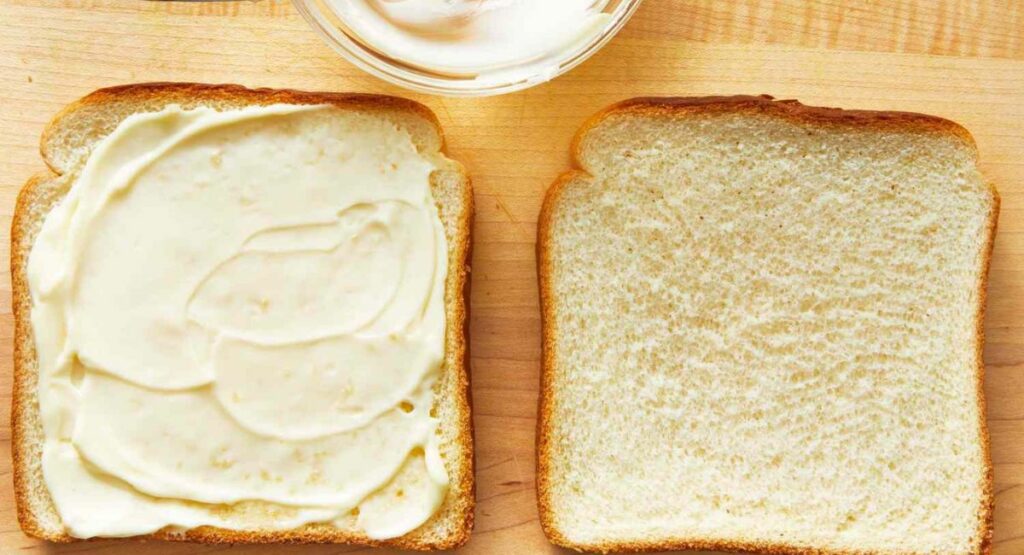
Mayonnaise is a popular condiment that is made from a few simple ingredients. Here is a detailed list of the ingredients typically used to make mayonnaise:
- Egg Yolks: Mayonnaise starts with egg yolks, which provide the emulsifying agents necessary to create a stable texture. The egg yolks contain lecithin, a natural emulsifier that helps bind the ingredients together.
- Vegetable Oil: Vegetable oil is the primary ingredient in mayonnaise and serves as the base for the emulsion. Commonly used oils include soybean, canola, or sunflower oil. These oils have a neutral flavour, allowing the other ingredients to shine.
- Vinegar or Lemon Juice: Acidic ingredients such as vinegar or lemon juice are added to mayonnaise to provide tanginess and enhance flavour. White distilled vinegar or freshly squeezed lemon juice are commonly used.
- Mustard: Mustard acts as an emulsifier and helps stabilize the mayonnaise. It also contributes to the flavour profile of the condiment. Dijon mustard or yellow mustard are commonly used varieties.
- Salt: Salt is added to enhance the overall taste of the mayonnaise and balance the flavours of the other ingredients. It is typically used in moderation, and the amount can be adjusted according to personal preference.
- Sugar: A small amount of sugar may be added to mayonnaise to balance the acidity and provide a subtle sweetness. This ingredient is optional and can be omitted if desired.
- Water: Water is sometimes added to mayonnaise to help achieve the desired consistency and texture. It can be used to thin out the mixture if it becomes too thick.
The process of making mayonnaise involves combining egg yolks, vinegar or lemon juice, mustard, salt, sugar (if using), and any other desired seasonings in a mixing bowl or food processor. These ingredients are whisked or blended together until well combined.
Next, the vegetable oil is added gradually while continuously whisking or blending the mixture. This slow addition of oil is crucial to create an emulsion. The emulsion is formed when the oil is dispersed into tiny droplets and held in suspension by the egg yolks and other emulsifiers.
As the oil is added, the mixture will gradually thicken and transform into creamy and stable mayonnaise. The process usually takes a few minutes.
If the mayonnaise becomes too thick, water can be added in small increments to adjust the consistency. Additional salt, vinegar, or lemon juice can be added to taste.
It’s important to note that homemade mayonnaise contains raw eggs, which may pose a risk of foodborne illness. To minimize this risk, it is recommended to use pasteurized eggs or consider using store-bought mayonnaise, which undergoes a pasteurization process to ensure safety.
With this detailed list of ingredients and an understanding of the preparation process, you can try making your own delicious mayonnaise at home!
Does Mayonnaise Have Alcohol In It?
Mayonnaise does not typically contain alcohol as part of its standard recipe. The traditional ingredients of mayonnaise, as mentioned in the previous response, include egg yolks, vegetable oil, vinegar or lemon juice, mustard, salt, sugar (optional), and water (if needed for consistency).
Alcohol is not a common ingredient in mayonnaise. However, it’s important to note that some speciality or commercially produced mayonnaise variants may incorporate specific flavours or additives that could contain alcohol. These variations are not standard for traditional mayonnaise and would be explicitly labelled if alcohol was present.
If you have specific dietary restrictions or concerns related to alcohol consumption, it is advisable to carefully read the ingredients label of any mayonnaise product you intend to use or contact the manufacturer directly for clarification. This will ensure that you have accurate information about the specific product you are considering.
Does Mayonnaise Have Pig Fat?
Traditional mayonnaise does not contain pig fat as one of its standard ingredients. The primary ingredients of mayonnaise, as mentioned earlier, typically include egg yolks, vegetable oil, vinegar or lemon juice, mustard, salt, sugar (optional), and water (if needed for consistency).
Vegetable oil, such as soybean, canola, or sunflower oil, is commonly used as the main fat component in mayonnaise. These oils are derived from plant sources and do not contain pig fat.
It’s important to note that different brands or variations of mayonnaise may exist, and some speciality or commercially produced mayonnaise products might incorporate different types of oils or fats. Therefore, it is recommended to carefully review the ingredients list on the product packaging to determine the specific fat source used in a particular brand or type of mayonnaise.
If you have specific dietary restrictions or concerns regarding the consumption of pig fat, reading the ingredients list or contacting the manufacturer directly will provide you with accurate information about the fat source used in the mayonnaise you are considering.
Is There Any Gelatin In The Mayonnaise?
Traditional mayonnaise does not contain gelatin as one of its standard ingredients. The primary components of mayonnaise, as discussed earlier, typically include egg yolks, vegetable oil, vinegar or lemon juice, mustard, salt, sugar (optional), and water (if needed for consistency). Gelatin is not a traditional ingredient in mayonnaise recipes.
Gelatin is a protein derived from collagen, often obtained from animal sources such as the skin and bones of animals. It is commonly used as a gelling agent in various food products, including desserts, gummy candies, and some processed foods.
However, it’s important to note that different brands and variations of mayonnaise may exist, and some speciality or commercially produced mayonnaise products might incorporate additional ingredients or additives to enhance texture, extend shelf life, or modify the flavour. Therefore, it is recommended to carefully read the ingredients list on the product packaging to determine if gelatin or any other specific additives are included in a particular brand or type of mayonnaise.
If you have dietary restrictions or concerns regarding gelatin consumption, reviewing the ingredients list or contacting the manufacturer directly will provide you with accurate information about the specific product you are considering.
Is Mayonnaise Halal Or Haram?
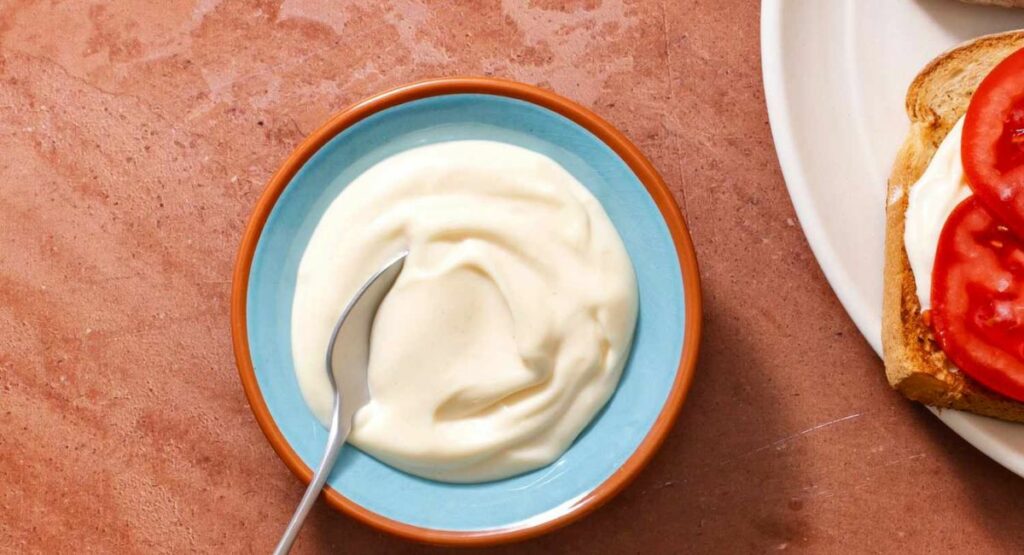
Mayonnaise is generally considered halal unless it contains any haram (forbidden) ingredients or has undergone a manufacturing process that renders it non-compliant with Islamic dietary laws. In its basic form, mayonnaise consists of ingredients like egg yolks, vegetable oil, vinegar or lemon juice, mustard, salt, sugar, and water. These ingredients are typically permissible in Islam.
To ensure the halal status of mayonnaise, it is essential to consider the following factors:
- Ingredients: The individual components of mayonnaise, such as egg yolks, should be derived from halal sources. It is important to verify that the eggs used are from halal-certified sources.
- Source of Oil: The vegetable oil used in mayonnaise should be obtained from permissible plant sources. Common oils like soybean, canola, or sunflower oil are generally considered halal.
- Flavourings and Additives: Some mayonnaise products may contain additional flavourings, additives, or stabilizers. It is crucial to examine the source of these ingredients and ensure they are halal.
- Manufacturing Process: The production process should adhere to halal standards. This involves avoiding cross-contamination with non-halal ingredients and ensuring that the facility follows halal certification guidelines, if applicable.
It’s important to note that the specific halal status of mayonnaise can vary between brands and manufacturing processes. To be certain about the halal compliance of a particular mayonnaise product, it is advisable to check for halal certification from reliable halal certification agencies or consult with Islamic scholars or authorities for guidance.
By assessing the ingredients, sources, and production methods, individuals can make informed choices about consuming halal mayonnaise in accordance with their dietary preferences and religious beliefs.
Also Read:
Is Ranch Dressing Halal: Dive into the world of Ranch dressing and its Halal suitability. Explore the ingredients and preparation methods to find out if this popular dressing complies with Islamic dietary laws.
Is Tartar Sauce Halal: Delve into the tangy world of tartar sauce and its Halal credentials. Learn about the key ingredients and production methods that determine whether this condiment is permissible in your Islamic diet.
Is Aioli Halal: Explore the creamy and flavorful world of aioli to determine its Halal status. Uncover the ingredients and culinary techniques that impact whether this sauce aligns with Islamic dietary guidelines.
Is Tahini Halal: Discover the Halal status of tahini, the creamy Middle Eastern condiment, in this insightful article. Explore the origins of tahini, its ingredients, and the factors that determine its Halal compliance.
Is Hummus Halal: Dive into the world of hummus and its Halal suitability in this informative read. Uncover the secrets behind this beloved Middle Eastern dip, its ingredients, and the key considerations for determining its Halal status.
Conclusion
In conclusion, determining the halal status of mayonnaise requires careful consideration of the ingredients used, their sources, and the manufacturing processes followed. While traditional mayonnaise made with permissible ingredients such as egg yolks, vegetable oil, vinegar or lemon juice, mustard, salt, sugar, and water is generally considered halal, it is important to be vigilant about additives, flavourings, and potential cross-contamination during production.
To ensure halal compliance, individuals can seek out halal-certified mayonnaise products or consult reliable halal certification agencies. It is always recommended to verify the halal status of specific brands or contact manufacturers directly for the most up-to-date information. By making informed choices, individuals can enjoy mayonnaise while adhering to their dietary preferences and religious beliefs.
Frequently Asked Questions (FAQs)
Is Kraft Mayonnaise Halal?
Kraft does not have a specific halal certification for its mayonnaise products. While the ingredients in Kraft mayonnaise, such as egg yolks, vegetable oil, vinegar, and mustard, are generally considered halal, the absence of halal certification means that there may be concerns regarding the sourcing of ingredients, additives, or the manufacturing process. To ensure halal compliance, it is recommended to look for products with reliable halal certification or contact Kraft directly for the most up-to-date information on the halal status of their mayonnaise products.
Is Heinz Mayonnaise Halal?
Heinz has not obtained a specific halal certification for its mayonnaise products. While the ingredients typically used in Heinz mayonnaise, such as egg yolks, vegetable oil, vinegar, and mustard, are generally considered halal, the absence of halal certification means that there may be concerns regarding the sourcing of ingredients, additives, or the manufacturing process. To ensure halal compliance, it is advisable to look for products with reliable halal certification or contact Heinz directly for the most up-to-date information on the halal status of their mayonnaise products.
Is Kewpie Mayonnaise Halal?
Kewpie mayonnaise does not have a specific halal certification. While the main ingredients in Kewpie mayonnaise, such as egg yolks, vegetable oil, vinegar, and mustard, are generally considered halal, the absence of halal certification means that there may be concerns regarding the sourcing of ingredients, additives, or the manufacturing process. To ensure halal compliance, it is recommended to look for products with reliable halal certification or contact Kewpie directly for the most up-to-date information on the halal status of their mayonnaise products.
Is Hellmann’s Mayonnaise Halal?
Hellmann offers halal-certified mayonnaise products in certain regions, catering to the dietary needs of Muslim consumers. However, the availability of halal-certified Hellmann’s mayonnaise may vary depending on the specific country or region. It is recommended to check the product packaging for halal certification symbols or contact Hellmann’s directly to inquire about the halal status of their mayonnaise products in your particular area.
